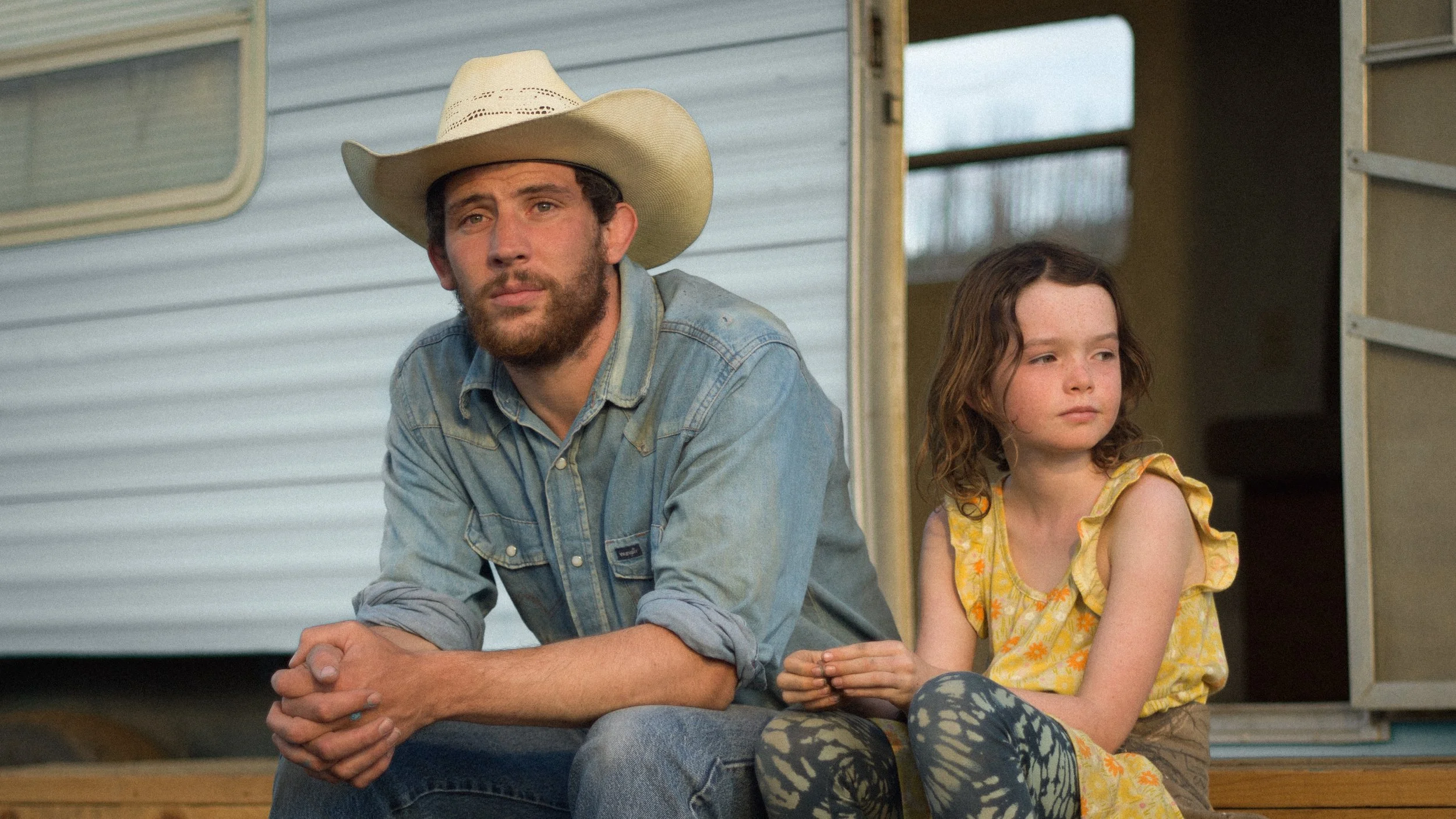
SIFF 2025: Day 11 Journal
May 25th, 2025 / Kevin Ward
Capsule Reviews of everything screened at the Seattle International Film Festival 2025
Rebuilding
—❤️❤️❤️💔🖤 —
Rebuilding is a somber meditation of a man picking up the pieces after catastrophe. Josh O’Connor plays Dusty, a reserved, recently divorced father whose ranch has been destroyed in a wildfire. Now living in a trailer on a FEMA site, he weighs his options, seriously considering a move to Montana for steadier work. But at the urging of his ex-wife Ruby, played by a wonderfully understated Meghann Fahy, he agrees to spend more time with their young daughter Callie-Rose (Lily LaTorre).
At first, Dusty sees the loss as purely financial—just a job gone up in smoke. He doesn’t view himself as the same as the others at the FEMA site; in his mind, they’ve lost everything while he’s simply in transition. But as Ruby encourages him to be present, and he begins to share quiet moments with neighbors he once kept at arm’s length, Dusty starts to recognize a more profound sense of shared loss. What burned wasn’t just a ranch—it was a way of life, a sense of place, a fragile tether to family and community. And as Callie-Rose, played with irresistible charm by LaTorre, beams beside him, it becomes almost unthinkable that he could walk away. His roots may have been scorched, but they’re still there—just beneath the surface, waiting to be tended, waiting (perhaps begging) to grow back.
Inspired by his own time between homes and shaped by his lived experience in fire-scarred towns, director Max Walker-Silverman infuses Rebuilding with grounded authenticity. He reminds us that home can be reimagined after devastation and that community can be as resilient as wildflowers rising through ash.
Slanted
—❤️❤️❤️❤️🖤 —
Slanted is a biting, bold, and darkly funny high school satire that blends coming-of-age drama with sharp social commentary and a hint of body horror. Imagine Mean Girls filtered through The Substance, then raised in a society obsessed with white beauty standards.
It follows a high schooler determined to win Prom Queen despite knowing the game is stacked against her. The early scenes take their time to establish the social hierarchy, but once our protagonist decides to undergo a physical transformation, the film shifts into something sharper and more propulsive. It offers overt commentary on beauty, assimilation, and self-worth. However, a keen eye will catch the shifting aspect ratios reflecting the protagonist's self-image, clever background signage reinforcing the film's themes, and even the school mascot as a pointed metaphor. These small but deliberate choices showcase the strong directorial hand of Amy Wang, whose debut feature arrives with an assured and distinctive voice.
While Wang wasn't able to fully lean into the body horror elements due to producer constraints, the glimpses we do get are effective and thematically potent. There's a real boldness in how the film confronts internalized racism and the commodification of beauty, making it more than just a darkly funny high school satire. With Slanted, Amy Wang establishes herself as a director to watch—balancing entertainment with razor-sharp commentary. Hopefully, she'll have even more freedom next time to push her vision to its fullest potential.
Cloud
—❤️❤️❤️🖤🖤—
Cloud from Kiyoshi Kurosawa depicts a slow-burn descent into moral rot, targeting the hollow heart of capitalism. Masaki Suda plays Ryousuke Yoshii, a coldly transactional reseller who flips whatever he can—medical appliances, "designer" bags, collectible toys—using cutthroat tactics to source goods without concern for who gets hurt. As for the quality, legitimacy, or provenance of the items, he pleads ignorance—so long as he's cashed out before the fallout. When Yoshii turns down a promotion at his factory job to pursue his side hustle full-time, it's the first step in a quiet unraveling.
Yoshii and his girlfriend Akiko (Kotone Furukawa) move to the countryside, a shift that props up their surface-level goals and shared materialism—a fresh start built on the same hollow foundation. But as Yoshii's online reseller persona, Ratel, begins to attract backlash, a karmic wave builds and looms. The countryside offers no peace—only isolation and exposure—and Kurosawa transforms its stillness into a pressure cooker. Yoshii and Akiko's relationship grows increasingly transactional; any affection between them, if it ever existed, is drowned out by their shared materialism. Akiko is drawn a little too cartoonishly in her obsession with wealth, which softens some of the film's sharper critiques. However, her arc still reinforces the idea that in a system built on extraction, even intimacy becomes another asset to be leveraged.
Cloud is an entertaining morality play—a cynical critique of capitalism in which, in the end, capitalism eats the capitalist.


